Airport Fuel Security & Safety
Airport security & safety for protecting assets & personnel at national & international strategic aviation transport sectors, including Air Force & armed forces bases
Remember the expression every fire fighter and every oilman knows by heart:
"If you think security is expensive, try a disaster".
Technokontrol would like will to inform and assist any regional national or international airport operator to consider or to investigate the use, installation of our Technokontrol safety, efficiency, security and environmental technologies to protect their aviation assets, employees, consumers when being involved in such a “delicate & important” transport system for any government or private corporation/operator as “Airport Security & Safety”.


All airports around the world having fuel tanks, jumbo tanks, truck tankers which all need protecting especially against terrorism, sabotage, theft, vandalism and any airport accident, incident or climatic events becoming a “Global News Breaker” as any attack, accident, simple incident from “too much snow, employee strikes to storm flash flooding” is always top international news and thus without entering in to the real in depth “Airport Security & Safety Programs” which any incident is seen as an international threat to all visitors, tourists, business people, governments, corporations, etc.




Not forgetting that “Security & Safety” doesn´t just mean physical asset or human security & safety but also “fighting & protecting” against sabotage, terrorism, theft, vandalism, etc. A simple example of this mentioned point is the continuous sabotage of the “Israeli Airlines” which suffer from continuous “Jet fuel sabotage” to bring down any their aeroplanes which would be “top global news” and that´s using the “sabotage route” and without using well known and more conventional terrorist methods as fire arms, missile launches, car bombs, suicide attacks against Israeli aircraft, airport installations and passengers, but just by damaging, sabotaging fuel pumps, mixing chemicals or water into aircraft jet fuel tankers, refuelling tankers especially for aircraft refuelling or airport usage.


Airport security is paramount and refuelling, transporting, refuelling essential not only for the industry but to the outside world as it’s the “Global Gateway to and from any destination” and thus it must be protected in some way or manner against any possible threat, internally or externally, from common criminals to active terrorist cells and any attack on an airport, aeroplane, becomes global news which in turn damaging the international image and un-safety/ safety perception of any nation regardless if the UK, Spain, USA, Australia or Nigeria.


In the event of any attack, sabotage or fire, explosion, accident any airport must be in a position not only to secure the assets/installation but also to becoming “operational” as soon as possible. The attack of fuel tanks by Rocket propelled rocket launchers, snipers, of car bombs is what is happening in other nations with civil unrest, religious issues, movement or terrorist cells and the “low cost media activation” is the simple and effective act of attacking tourists, visitors on regional, national or international aircraft or at international, national airports is “low cost & high quality global publicity” even if it’s only an “attempt of an attack” as these acts can change clients, visitors, consumers perception greatly towards that destination.




Emerging nations or even stable, modern nations have increasing numbers of these types of “potential risk activities”, Madrid and Moscow airports being bombed in recent years due to many regional, national, geo-political, financial, civil unrest or religious motivated reasons and the installation of our Technokontrol Safety, Security technologies will allow a “great safe piece of mind” at these national/international strategic “gateways” from the operator , employees to the travellers, thus being in a position to resolve any type of threat from any quarter, group or reason, or at least trying ones upmost to reduce the “Risk factor” as much as possible.



The validated confirmation that fuel especially in high humid, hot climatic nations can reach the vaporization of at least 15%-25% per year of all fuel reserves of jumbo tanks storage facilities will make sure that any investment in these technologies will be amortized on their “own” without going into other benefits as being anti-corrosion, allowing tanks and truck tankers to avoid corrosion thus being operational for many years. The issue of “Fuel Tank Sloshing” avoiding bad drivers or overloaded fuel tankers to cause any type of delivery or fuel transport incidents.

The use of any of Technokontrol Safety & Security alloys will not affect the chemical, technical characteristics of any types of fuels especially Jet fuels or chemicals thus being able to be used, applied and installed for many years with no fuel chemical downgrade, damage putting anyone at risk due to fuel contamination.



Technokontrol additional benefits as” Anti-vaporization” thus saving of hundreds of millions USD per year, due to saving fuel as at each refuelling stage, jumbo tank to delivery tank, to petrol station, to tanker, to aeroplane can have a daily vaporization loss of up to or over 10% at all stages stated and if an airport delivers, sells 1 million litres of fuel a day just 10%, of one million litres (100,000 litres) per day may be saved due to our Technokontrol “anti-vaporization technology” properties only.

The importance of fuel oxidation, algae growth, low quality storage facilities are another main issue to investigate and to act on. Using Technokontrol alloys will also stop any corrosion, oxidation and algae growth if it already exits thus saving and extending the fuel tank life.

In the event of using new fuel tanks NO CORROSION, algae growth or oxidation will never occur or become activated due to Technokontrol technical characteristics and properties to any storage or fuel tank thus extending their operational lives from a normal 15 years maybe at least double or treble the years thus again saving massive amounts of funds to the government, airport authorities, etc.


Safety, anti-thermal, anti-fire wall panels (1cm resisting over 240 minutes at 1600ºC) thick anti-fire wall panels should also be considered and combined with a modern airport fire service will allow any incident to be put under control with immediate effect.
Any destination wishes to become a continental and international “AIRPORT HUB” or contender, especially with the income generated by foreign trade, visitors, tourists, thus aviation and national/international aviation industry being extremely important for any nation and to its “international” image thus any possible “Prevention Security & Safety Programs” should at least be disclosed, considered and if so, applied for National Strategic reasons including, safety, security, viability and credibility for its employees, clients, visitors but especially being the nations “International Gateways” of that nation towards the outside world and to which must be protected and made as un-tarnished as possible at all levels but especially at government levels as it’s not the same to say that all possible “Safety and Security” technologies were employed, installed than to say that there were “none or very few” were operational or even considered even having the knowledge of these technologies thus becoming a corporate or government responsibility.
WHAT FUELS ARE STORED, USED AND WHAT ARE THEIR RISKS TO THE INDUSTRY ESPECIALLY AT AIRPORTS STORAGE AND DELIVERY FACILITIES?
Any Airport security expert at knows that the use of all types of fuels and especially Jet A1 Fuel, and their relation to possible, probable fires and explosions is much more serious than one can estimate or value at first eye. There is a whole mountain of risks involved between the alleged low ignition risks of any Jet fuels and the cold hard reality of the day.








In Miami, for example, a fire initiated in an underground storage tank, the most secure storage method available. Jet A1 is a high calorific fuel and when it ignites it will bring you Armageddon. One should really reject any “fixation” of arguments on one single property of a fuel or a risk due to "reputation of being low risk but not being so" and people should not close their eyes to reality, especially if it is their responsibility to take care of security.
Yes, diesel, heavy oil or jet fuels all pose a smaller risk compared to gasoline, chemicals, gases. One can even throw a burning match into a pool of jet fuel and walk away unscaved. but the reality of the day is that severe accidents do happen and there is no excuse for not eliminating this risk permanently if such a solution is available and ignorance of new, advanced cost and risk saving technologies must be used and not just "hidden in a draw" until something does happen as this would be corporate and personal negligence, manslaughter or even worse a criminal act legally and possibly even worse morally. Ignoring the risk won´t make it go away and not standing up to the risk is even worse!

One must secure every stationary and mobile fuel tankers, secure the fuel lines and the valves, not because the solution comes relative the cost but because human life, loss of assets, capital and turnover is the real disaster staring you "straight into the eye" day after day.

“Remember the expression every fire fighter and every oilman knows by heart: If you think security is expensive try a disaster”.
We all have seen jet A1 fuel tanks explode on board aircraft, we have seen tank fires caused by static electricity, lightning, or violent compression. We have seen hundreds of people mutilated for life because their flesh was burned in a Jet fuel fire and also know many of the people who are burned to death. Every situation where human and natural factors interact with costly technology and infra-structure accidents happen.

“We all know Murphy's law and we are most honored to put Murphy's Law out of order”.
Technokontrol Safety & Security Technologies are about providing a radical "fail safe, efficient and financially viable technology" for all parties in this paramount issue as everyone benefits from its usage, application, installation as at the end just due to fuel vaporization savings, insurance savings even the operator or government doesn´t end up paying the investment as this saving becoming a long term profit and income generating additional due to selling fuel which would have been evaporated thus creating greater efficiency and productivity.

It’s not what you make but what you save! Without forgetting the most important issue of protecting people, assets, capital and loss of turnover, international image, credibility and most importantly the global perception of a nations "International branding & marketing".

MILITARY/ARMED FORCES AIRPORT ACCIDENTS & EXPLOSIONS
Airbase facilities Safety & Security using Technokontrol Technologies in the Armed Forces/Airports
An airbase typically has some facilities similar to a civilian airport—for example air traffic control and fire fighting. Some military aerodromes have passenger facilities. A number of military airbases also have a civil enclave for commercial passenger flights, e.g. Beijing Nanyuan Airport (China),Ibaraki Airport (Japan), Burlington International Airport (USA), Torrejon de Ardoz Airport, Madrid (Spain), Getafe Airport, (Spain)

Some airbases have revetments, hardened aircraft shelters, or even underground hangars, to protect aircraft from enemy attack. Combat aircraft require storage of aircraft ordnance. An airbase may be defended by anti-aircraft weapons and force protection troops and security is much higher due to also having more "tactical and strategic" importance than civilian airports.


However, all Armed Forces Bases, Air force bases require the same mechanical, technical, logistical back up, fuel storage facilities and fuel delivery systems as any other type of airport either cargo or civilian airports.
Due to the importance of military strategic operations normally these bases are much more protected than civilian airports, however, we have seen what has happened in Irak or Afganistan where "green on blue attacks" have killed military Nato, USA forces training national personnel thus sabotage, car bombings, suicide bombs and terrorism acts being just as easy to occur as in civilian airports as the enemy is already "inside".

When humans and machinery are together they can and will be always some kind of accidents or incidents which may be due to operational military attacks but also due to the simple factor of "human errors", as driving a fuel tanker into a parked aircraft. Airbases even though more protected also have a more important "strategic-logistical" value as this can be seen when terrorists or armed groups always try to obtain and control these "logistical aerial bases" not only for military reasons but also due to "media-news" reasons as this gives the occupying, attacking or terrorist group a "global breaking news coverage platform” as an attack or occupation of a city or military base has a very serious and important "media feedback at global" levels.
Due to these attacks becoming more and more serious, well planned, well prepared and militarily powerful enough to attack these logistical assets due to knowing that these "bases" are well protected by the present government/armed forces in power at that moment in time and to which meaning that the "attack" is becoming a possible turning point as no one can enter or leave the nation via this "aerial logistical-transport route", thus overturning the control meaning controlling national and international air space and these present aerial and terrestrial assets found in these "bases” as aircraft, ammunitions, fuel facilities, mechanical support, transports, as happend in Mali (Central Africa) during recent months in early 2013 falling in the hands of the "enemy" and making their military, political, media, economic position stronger and even being the initiation point to "over throw- coup d'état" the entire state or government.

Thus using Technokontrol Safety and Security Technologies will assist any Armed Forces/Government to reduce the possibility of fuel tanker, jumbo tank, fuel storage damages or explosions due to being protected by our Technologies thus allowing the "defending force" not to worry about these assets as they are protected and can be later controlled if damaged and repaired quickly and not totally lost in any" armed fire fighting" and concentrating in repelling the enemy or terrorist attack.

All the same benefits as anti-vaporation, anti-algae growth, anti-sloshing, anti-ignition, fire and thermal resistance properties, anti-electro static charges, anti-explosion, easy external welding repairing properties are all included and without the possibility of chemically or technically affecting the fuels, chemicals, liquids or their composition thus having a "Full Safe Protection Technology" and also 100% environmentally friendly.


















ATEX - European Antiexplosive Safety Directives

PREPARATION/DEGASIFICATION OF A PETROL STATION FUEL TANK, FUEL TANKERS, STORAGE FACILITIES BEFORE ATEX/NFPA: TK-ANTI-EXPLOSION ALLOYS INSTALLATION

ATEX/NFPA SAFETY DIRECTIVES FOR ATMOSPHERIC GAS/PETROL-CHEMICAL RISK-EXPLOSION ZONES

ATEX/NFPA EXTREME DANGER-DISCHARGING OF EXPLOSIVE GASES/VAPOURS AT PETROL STATIONS, MANHOLES, STORAGE TANKS

IMAGE OF AN ATEX/NFPA PETROL STATION MANHOLE REFUELING POINT WITHOUT TECHNOKONTROL ANTI-EXPLOSION ALLOYS

ATEX/NFPA ANTI-EXPLOSION/SAFETY DISCHARGING-REFUELING VALVES FOR PETROL STATIONS, FUEL DEPOTS, REFINERIES, PETRO-CHEMICAL PLANTS

ATEX/NFPA ANTI EXPLOSION, ANTI-ELECTROSTATIC, ANTI-SLOSHING, ANTI-VAPOR SAFETY VALVES "CUSTOM MADE" FOR EACH CLIENT AND TECHNICAL-INSTALLATION REQUIREMENTS

ATEX-/NFPA PETROL STATIONS-MAN HOLES, STORAGE FACILITIES, REFUELING AREAS - ATEX-EU/NFPA EXPLOSIVE ATMOSPHERIC DIRECTIVE DANGER SECTIONS

ATEX-NFPA TECHNOKONTROL ANTI-EXPLOSION-SPECIALIST SAFETY TECHNOLOGIES

SPECIALIST UNIQUE PATENTED ALLOY FORMULATIONS & DESIGNS FOR ALL ENGINEERING-TECHNICAL REQUIREMENTS INCLUDING USAGE FROM PROTECTION-SAFETY TECHNOLOGIES TO PETROL-CHEMICAL-ENVIRONMENTAL INDUSTRIES

TECHNOKONTROL SPECIALIS ANTI-VAPORIZATION, ANTI-THERMAL & ANTI-ELECTROSTATIC CHARGES ALLOYS FORMULATIONS


ANTI-EMPS (ELECTROMAGNETIC PULSES/RADIATION), SPACE/SATELLITE/AVIATION EXTREME THERMAL HEAT ATMOSPHERIC RE-ENTRY ALLOYS, ETC.

Technokontrol Certificates & Associations
Technokontrol Manufactures, Designs & Researches our safety products in the European Union at the highest possible International Accident,Health & Safety standards.
TechnoKontrol is a member of the NFPA
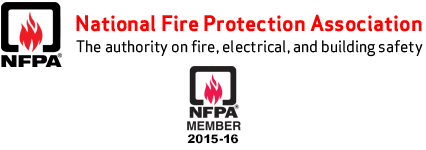
TechnoKontrol Products are ATEX Compliant
(European Antiexplosive Safety Directives)

Technokontrol's Products & Services are insured by

Certificates



































Aviation & Airports Protection
Petro-Chemical / Gas Tanks Protection
Videos regarding aircraft fuel tank explosions-accidents
- Fuel tanker refueling qccident - Animation
- 747 accident with airpirt tug truck
- Worst global aircraft/airport accidents
- TWA Fligth 800 - fuel tank explosion
- Fuel tanker hits aircraft at airport
- Largest aircraft accident in history - Tenerife, Spain
International security, safety regulations for refueling, storage, transport of fuel at airports
- EASA-FAA fuel tank safety for large aircrafts
- NATA refueling safety & qualitu standards
- IAWA Refueling regulations and procedures for all aircrafts
- Health & Safety - Security procedures to enter an aircraft fuel tank used by Boeing/Airbus
- Health & Safety - Security regulations for the use of refueling and its storage, delivery at any airport facility
- Jet fuel technical and chemical characteristics
- Boeing aircraft fuel tank explosion
Products
What is B.L.E.V.E. explosion?
TechnoKontrol Wikipedia

TechnoKontrol: 1st in Spain for own Technology patents 2013 & 2014

- Ministerio de Industria Turismo y Comercio-OEPM
Technokontrol, the number 1 corporation in Spain filing for its own technology patents, trademarks and utility patents (SPA) - OEPM 2013 The year in numbers (SPA)
TechnoKontrol has been fully verified and certified by Bureau Veritas
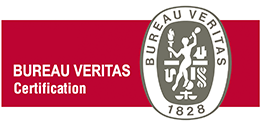
Certificates
- ISO 9001 - ES108784-1
- ISO 14001 - ES108782-1
- ISO 45001 - ES108783-1
- ISO 4126
- ISO 28000
- ISO 37000
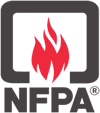
NFPA-National Fire Protection Association
NFPA-Asociación Nacional de Protección contra el fuego
TechnoKontrol is a member of the NFPA
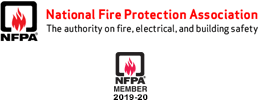
NFPA 69: Standard on Explosion Prevention Systems, 2016 Edition
Prevent deflagration explosions due to combustible dust particles, gases or vapors with NFPA 69. Combustible dust, gases and vapors produced in industrial settings can pose a significant safety hazard.NFPA 69: Standard on Explosion Prevention Systems offers definitive guidance on explosion protection and prevention systems.
ATEX - European Antiexplosive Safety Directives

- ATEX Guide: Protection in explosive atmospheres
- ATEX-EU/HAZLOZ-USA/NFPA-USA/DSEAR-UK/Explosion Directives TechnoKontrol Additional Anti-Explosion Data
- ATEX Directive in EU Directives
Dangerous Substances and Explosive Atmospheres Regulations - United Kingdom/ATEX

United Nations Economic Commission for Europe - UNECE - TechnoKontrol

- TechnoKontrol information for the UNECE BLEVE working group
Proposal transmitted by the governments of Spain and France
The European Parliament and The Council

Technokontrol's Products & Services are insured by

Dossiers TK Group of Companies
TK-Global Engineering - Where efficiency and reliability become a reality


BP World Report
Static Electricity Dangers and Protection
- Static Electric Discharge Hazard On Bulk Oil Tank Vessels
- Static Electricity - ISGINTT
- Dangers of static electricity and protection in aviation
- Static Electricity - IAPA
- U.S. Chemical Safety and Hazard Investigation Board
US Department of Transport
USA Chemical Safety Board
An independent federal agency investigating chemical accidents to protect workers, the public, and the environment.
About the CSB
CSB Safety Videos
- Chevron Richmond Refinery Explosion
- Deadly Contact
- West, Texas Real Live Blast Damage Video
- Hot Work - Dupont Explosion
- Static Sparks Explosion in Kansas
- Danger of Flammable Gas Accumulation
Articles
- Energy Sector Vulnerabilities: Petroleum (Spanish)
Documentation
- E.U. Strategic Fuel Reserves Directives 2012
- E.U. Strategic Fuel Reserves Directives 2006
- Protección de Infraestructuras Estratégicas y Críticas en la U.E. (SPA)
- Institute of Petroleum - Guidelines for Soil, Groundwater and Surface Water Protection & Vapours Emissions
- Ley de Hidrocarburos y de Seguridad Nacional de Abastecimiento (SPA)
- Protección de Refinerías (SPA)
- Almacenamiento Inflamables Combustibes (SPA)
- Almacenamiento Productos Químicos (SPA)
- Directiva del Parlamento Europeo y del Consejo 94/9/CE, relativo a los aparatos y sistemas de protección para uso en atmósferas potencialmente explosivas (SPA)
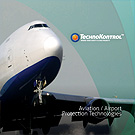
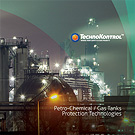
 Safety Products System
Safety Products System Eco-Energy Power Plants
Eco-Energy Power Plants TK Aviation
TK Aviation Environmental Industries
Environmental Industries Mining
Mining Petroleum Industry
Petroleum Industry Industrial Projects
Industrial Projects Maritime Industry
Maritime Industry Military Vehicles
Military Vehicles Transportation & Auto
Transportation & Auto Construction Industry
Construction Industry Global Food Industry
Global Food Industry Electronic Safety Systems
Electronic Safety Systems Housing Projects
Housing Projects